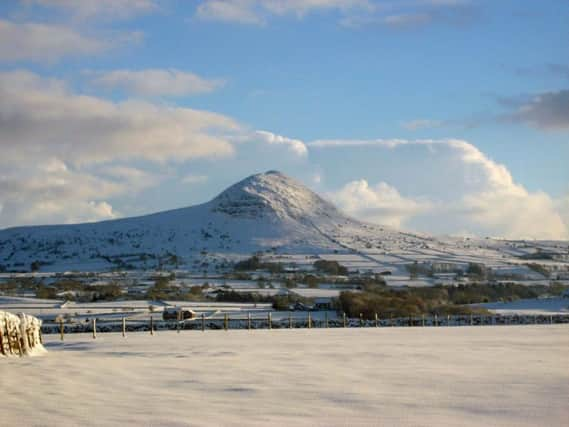Challenges of winter


We are now in the middle of winter, and I think it is probably fair to say that, unless we are into something like winter sports, this is not the favourite season for most of us. The cold and damp of our climate seems at times to ‘get into our bones’, and the short days, lack of sunshine, and dark evenings can be a bit depressing at times.
Certainly many farmers don’t like winter either, with its increased workload because many animals are housed, or perhaps they have to face frozen water pipes if the temperatures drop significantly, or difficulty with sheep on higher ground if there is a lot of snow, as happened here in Northern Ireland a few years ago. And elderly people, or those with chronic illnesses, can also sometimes actually dread severe winter conditions.
Advertisement
Advertisement
Around about 600 BC the King of Judah, whose name was Jehoiakim, was sitting one day in his winter apartment in Jerusalem, with a fire burning in a brazier in front of him. It was cold outside, but this king was very wicked and had forsaken God, so not only was the weather cold, his heart was cold also and stubborn, and we can see that from his actions recorded in the Old Testament (Jeremiah chap. 36).
At that time the prophet Jeremiah was God’s faithful servant, and he dictated a message from God for the king. Having had it written down on a scroll, it was taken to the king, and read to him as he sat in front of his fire. Now the question arises: ‘what should this king have done with the word of God which came to him through Jeremiah?’
Well, the answer to that question is simple; he should have listened carefully to it, and then obeyed everything which God said to him! After all, God is our great Creator, and we are His creatures, and all people (including kings) are bound to obey Him, because disobedience to God’s word is sin, and sin is very serious in God’s eyes.
But what DID Jehoiakim do? We are told that, as each part of Jeremiah’s message was read from the scroll, he cut that bit of the scroll off with a knife, and burned it in his fire. It was winter outside, but, worse than that, the king’s heart was as cold as ice. He did not fear or reverence God, and refused God’s word.
Advertisement
Advertisement
God has spoken to people in many ways; through creation (where we see His power and glory), through Jesus when he was here on earth 2000 years ago, and through His written word, the Bible. And it is very foolish for us, including me, to be like king Jehoiakim and to either just ignore God’s word, or refuse to obey it.
So, as we have swung wide the gate to 2019 and entered into February, I want to encourage all readers of this column to diligently study the Bible, and pray earnestly that God will help you to understand it so that you would come to know the Saviour, Jesus, whom it speaks of. And don’t be like King Jehoiakim, who heard God’s word on a cold winter’s day, but despised it, and refused to listen to it.
Rev. Dr. Kenneth Patterson is a former GP who was ordained for the ministry in 1990. He retired in 2013 after 19 years as Minister of Castledawson and Curran Presbyterian churches in South Derry. Having worked on farms during his student days, before becoming a minister, as a hobby he now enjoys restoring vintage farm machinery.
If you would like to talk to someone about any of the issues raised in this article, please email Rev. Kenny Hanna at [email protected] or call him on 028 9753 1234.